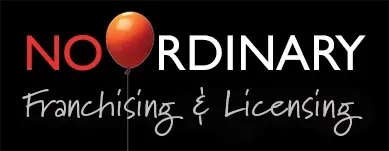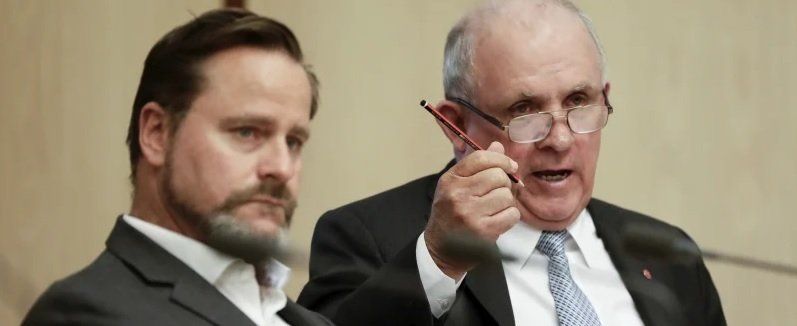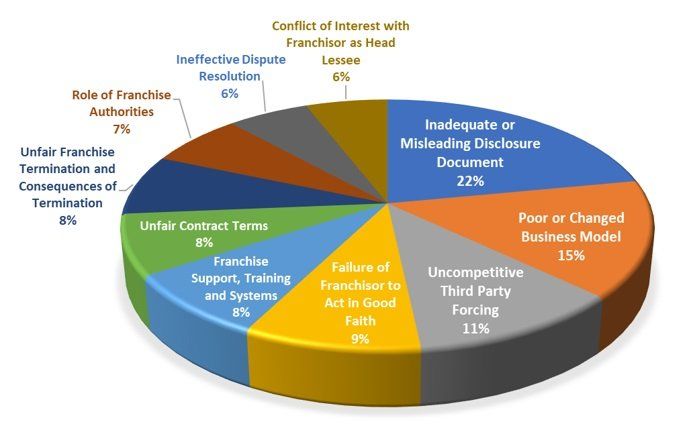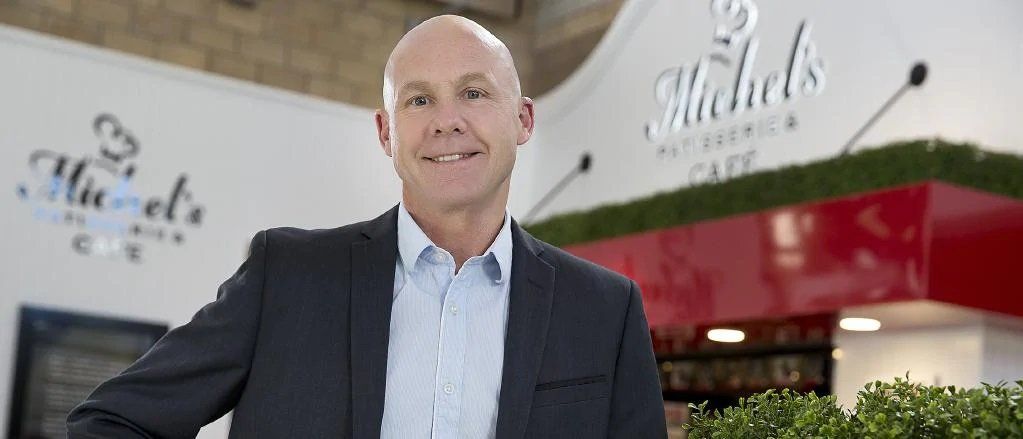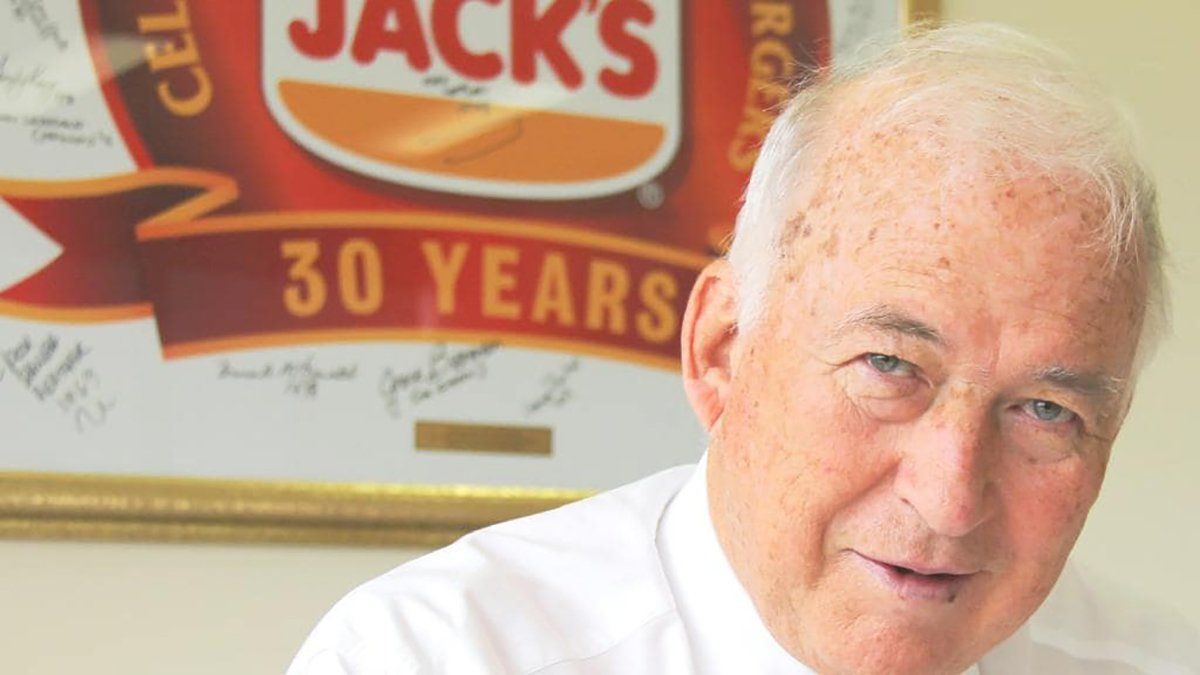Seeing headlines such as this one, you could be excused for thinking that the entire franchise industry in Australia is crooked and in chaos.
Yet going through all the publicly available submissions made to the latest parliamentary inquiry into franchising, I found that only 4% of Australia’s 1,100 franchises were named. This despite the ability of franchisees to make anonymous submissions if they were concerned about repercussions from their franchisors.
The Fairness in Franchising Report itself said that “the overwhelming majority of franchisors are doing nothing wrong”. Yet the SMH headline and others like it would seem to tar every franchise in Australia with the same brush. Could it be that it is this kind of reporting that is “shameful and out of control” itself – not to mention extremely damaging to a vital sector of the Australian economy and communities?
Don’t get me wrong. There are clearly serious issues with the franchise regulatory system and some franchisors’ actions which were brought out by the Inquiry. I am simply trying to take a more balanced perspective with the aim of suggesting solutions which are fair to all parties and which might work.
Let’s start by understanding the specific issues raised at the Inquiry.
1. Inadequate or Misleading Disclosure
One in five franchisees felt that the Disclosure Document which must be provided to prospective franchisees under the Franchise Code was too complex and in many cases, contained information that was inadequate, irrelevant or deliberately misleading.
Several made the recommendation that there should be a mandatory due diligence process, including the requirement to seek advice from accredited franchise professionals and talk to existing franchisees.
2. Poor or Changed Business Models
A handful of franchise systems were singled out by their franchisees for altering their business models without consultation and at considerable cost to franchisees. Fifteen franchisee submissions claimed that the model they had bought into was not as viable or profitable as they had been led to believe. Five said their franchisor relies on network growth rather than franchisee success.
3. Uncompetitive Third Party Forcing
Where franchisees are required to purchase products exclusively from either the franchisor or suppliers approved by the franchisor, many franchisees felt that they had been disadvantaged by uncompetitive pricing and hidden rebates paid by suppliers to the franchisor only. Several felt they could have obtained better quality for the same price from non-approved suppliers.
4. Failure of Franchisors to Act in Good Faith
Although the 2015 franchise reforms introduced the requirement for franchisors to act in good faith toward their franchisees, it is evident that some have not. What particularly stuck in some franchisees’ craw was that their franchisor was actively competing with them with online sales. This is a growing problem for franchises as they battle e-commerce for market share.
5. Other Issues of Particular Note
Based on the many issues raised during the Inquiry, the Fairness in Franchising Report contains no less than 74 recommendations for improving the Franchise Code. But the Taskforce formed at the recommendation of the Committee to follow up on the work of the Inquiry has seen fit to boil down all those recommendations to a list of just seven ‘Principles’. They are:
Principle 1.
Prospective franchisees should be able to make reasonable assessments of the value (including costs, obligations, benefits and risks) of a franchise before entering into a contract with a franchisor
Principle 2.
Franchisees should have time to consider whether the relationship is right for them before committing to an agreement
Principle 3.
Each party to a franchise agreement should be able to verify the other party is meeting its obligations and is generating value for both parties
Principle 4.
A healthy franchising model fosters mutually beneficial cooperation between the franchisor and the franchisee, with shared risk and reward, free from exploitation and conflicts of interest
Principle 5.
Where disagreements turn into disputes, there is a resolution process that is fair, timely and cost effective for both parties
Principle 6.
Franchisees and franchisors should be able to exit in a way that is reasonable to both parties
Principle 7.
The framework for industry codes should support regulatory compliance, enforcement and appropriate consistency
While these Principles are broad-reaching, the Taskforce seems to have left out many of the Fairness in Franchising Report’s recommendations, perhaps in its zeal to simplify and streamline the reform process. But the omissions have not escaped the notice of the Australian Association of Franchisees (AAF) which in a frustrated submission to the Taskforce compiled the following list.
AAF’s List of Issues Omitted from the 7 Principles
- Compulsory low-cost arbitration
- Franchisors as landlords
- Shopping centre lease arrangements and liability
- Restricted supply options and third line forcing
- Franchisors competing with their franchisees
- Franchisee options where Franchisor fails or wishes to sell Geographic exclusivity
- Royalties
- Direction of money flows
- Freedom of association
“There was a strong sense that the breadth of the Inquiry’s findings was being arbitrarily reduced,” said the AAF.
In the other camp, franchisors such as billionaire Jack Cowin, who founded the Hungry Jack's burger chain and is a major shareholder in Domino’s Pizza Australia, say regulatory compliance is costing them millions.
“The real purpose behind what the government is trying to do is have a more level playing field and protect the franchisees from abuse and that is not unreasonable,” Cowin told the Sydney Morning Herald
and The Age. But he expressed concern that Australia is entering into uncharted territory with the planned reforms for the franchising sector.
One of the reasons is that “potential policy problems” have been identified for every one of the Taskforce’s 7 Principles. An example is the proposal to introduce arbitration powers into the franchising code in response to the finding that the current mediation process has failed many franchisees. The problem is that the arbitration proposal raises potential constitutional headaches around the jurisdiction of the courts and separation of powers.
Because of this, the taskforce has floated several other options for improving dispute resolution without introducing arbitration into the code, but University of Sydney lecturer and former Office of the Franchising Mediation Advisor (OFMA) Derek Minus says that option would be like “moving deck chairs on the Titanic”.
I am hopeful that after some 18 inquiries into franchising over the past 30 years, this round of reforms will have a positive and lasting impact on Australian franchising, provided that the Taskforce takes due consideration of the following factors.
Factors That Will Contribute to the Success of the Upcoming Franchising Reforms
1. Understanding of franchising
It has always been a concern of mine that politicians with no particular understanding of franchising – or any type of business – keep sticking their noses into these parliamentary inquiries. The Australian government was smart to appoint Alan Wein, who has a deep understanding of franchising, to head the last inquiry. But it’s not clear that whether the backgrounds of the members latest senate committee or indeed the Taskforce have any relevance to franchising at all.
2. Acknowledging that franchising must evolve
In this fast-changing world, all businesses must evolve in order to survive and thrive. Franchising is no exception. Taskforce proposals that no changes should be made to franchise manuals ignore this and put franchises and their franchisees at risk of becoming dinosaurs.
3. Understanding that franchising is not a guarantee of business success
“Franchising does not reduce risk, franchising does not reduce the need for hard work, franchising does not guarantee success and franchising is not a form of employment.” This quote from Richard Evans’ submission (#150) to the parliamentary inquiry hits the nail on the head. I am not going to get into any arguments about whether buying a franchise is or isn’t less risky than going into business for yourself, but given that statistics show that two-thirds of independent businesses fail within three years, why isn’t there a parliamentary inquiry into entrepreneurship?
Shaun Temby and Greg Hipwell of Maddocks Law Firm took this point a step further:
“… in looking to rebalance the franchisor-franchisee relationship, the Committee may have swung the pendulum too far, as what comes through the report is the need for franchisors to underwrite the success of franchisees and that if they do not do so and a franchisee fails, then the franchisor is implicitly at fault or has conducted themselves poorly or even unlawfully. Where this sentiment appears to have driven some of the recommendations in the report, then they are likely to be flawed.”
4.
Franchisees are different from independent business owners
“Franchisees and independent operators have distinctly different motivations for entering business and possess different psychological traits. Franchisees seek the security of a franchise network and are risk avoiders, whereas independents are confident, proactive risk takers… Given their overall greater feelings of confidence and autonomy, independents were more willing to take responsibility for failure or setbacks than franchisees, who tended to attribute blame to external factors.”
External factors such as the franchise system they have chosen to commit to? This quote from the 2012 Griffith University study Survival of the fittest: The performance of franchised versus independent small business during economic uncertainty and recovery clearly illustrates the difference between franchisees and entrepreneurs.
5. Not all franchisees are created equal
Anyone who has been directly involved in managing or owning franchises knows that in any franchise system, despite all your efforts to select and train the right people, you have your stars, your so-so performers and your dogs. It’s a hard truth but a truth nonetheless. And the dogs not only put themselves at risk, but all their fellow franchisees and the franchise as a whole.
In conclusion, I would remind the Taskforce and every franchisor and franchisee in Australia and New Zealand that franchising is all about relationships and study after study has come up with the same finding about success in franchising:
“In franchising, as well as creating economic stability, the franchisor must create value for franchisees, developing trustful relationships with franchisees.”
(From Economic Sustainability in Franchising: A Model to Predict Franchisor Success or Failure
by Esther Calderon-Monge, Ivan Pastor-Sanz and Pilar Huerta-Zavala, University of Burgos and University of Parralillos, Spain, 2017)
This article first appeared in the 2020 Franchise and Business Directory
issued by Business Franchise Australia and New Zealand.
I'm Robin La Pere, no ordinary business expansion and franchise consultant. I've been involved in franchising for more than 20 years, and I am one of the few franchise consultants I know who have a combination of franchise management, franchise ownership and franchise consulting experience. I understand the industry at every level and across a wide range of business types. I have worked with many franchise systems to improve, develop and innovate.
As someone who believes that the franchising business model is an excellent way to scale while giving people a leg-up into their own businesses, I am appalled by the findings of yet another Australian Franchising Inquiry of misconduct in the industry - and even more appalled by the news media which seems intent on damning the whole sector for the actions of a few.
I have some thoughts which I will share with you in upcoming articles, but in the meantime, here are some of the ways I can help you to establish, develop, improve or grow your franchise.

Slide title
Write your caption here
Button
A new approach to manuals that works
If you have a team and systems in your organisation, you probably use manuals for training, guidance and compliance. But if they’re paper manuals, they probably spend most of the time sitting on a shelf, gathering dust.
That’s because it's difficult to find what you need, when you need it, in a sea of text.
In this age of mobile technology, effective organisations and trainers are turning to intranets, smart phones, software and interactive tools to get better results from their teams. But there’s an even better way...
With a background in teaching, writing and marketing, I can show you how the latest motivational and training techniques together with technology can make an even bigger difference to your people’s productivity, engagement and morale. Boosting your business at the same time as saving you time and money.
Contact me for a free Initial Consultation.
Get back in the race with a
re-energised business model
The myth of the ‘proven business model’ continues to pervade franchise marketing. But in this fast-changing world, is there any such thing?
New terms such as ‘agile’ and ‘pivot’ have entered franchising lingo as franchises struggle to stay in the lead. And there’s a new recognition that it's not your business plan that’s critical to your success, it’s your very business model.
Recognising that the franchise business model differs from that of other businesses in several ways, I have written an e-book specifically for the franchise industry which I invite you to download now with my compliments.
Download this free e-book before it’s too late!
